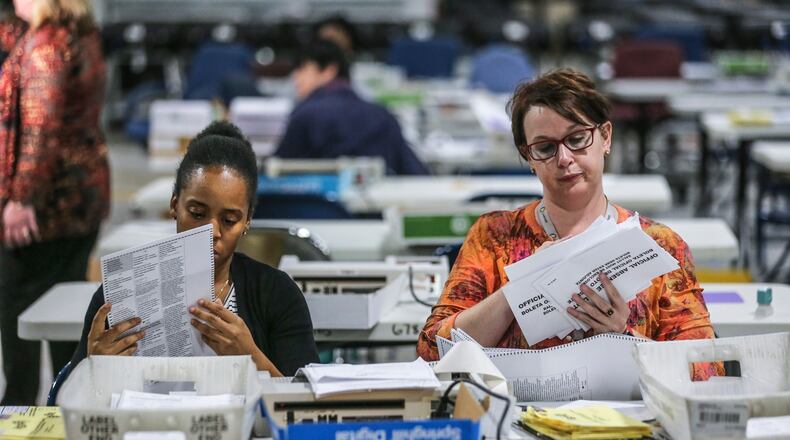Soon after two federal lawsuits demanded that election officials count more absentee ballots Sunday, the State Election Board voted unanimously to issue guidance about how local election officials should proceed.
The board asked Secretary of State Robyn Crittenden to send a letter to all of Georgia’s 159 counties telling them how to process mailed-in ballots.
The details of the letter weren’t disclosed after the State Election Board met in private executive session for more than an hour and a half Sunday night to discuss pending litigation.
One lawsuit, filed by the Democratic Party of Georgia on Sunday, asks a federal judge to require absentee ballots rejected for "arbitrary" reasons — like an incorrect birth date or missing information — to be counted if the voter's identity can be verified by using other available information.
A separate motion in federal court by the congressional campaign of Democrat Carolyn Bourdeaux seeks to delay Gwinnett County from certifying its results until rejected absentee ballots can be counted.
In Gwinnett County alone, 1,587 mailed absentee ballots were rejected, often because they were missing birth dates, according to public records from the Georgia Secretary of State's Office. Across Georgia, election officials rejected a total of 5,147 mailed ballots.
The lawsuits allege that federal law prohibits discarding absentee ballots solely because of missing birthdate information. Votes could potentially be verified by matching their signatures and other information to government records on file.
In one of the lawsuits, a federal judge already issued a ruling to ensure legitimate absentee ballots are counted. U.S. District Judge Leigh Martin May granted an injunction last month barring Georgia election officials from rejecting absentee ballots without giving would-be voters advance notice and a chance to rectify any issues.
Democrat Stacey Abrams is trailing Republican Brian Kemp in preliminary vote counts in their race for governor. She would need to gain more than 21,700 votes that haven’t been counted yet to force a runoff.
About the Author





